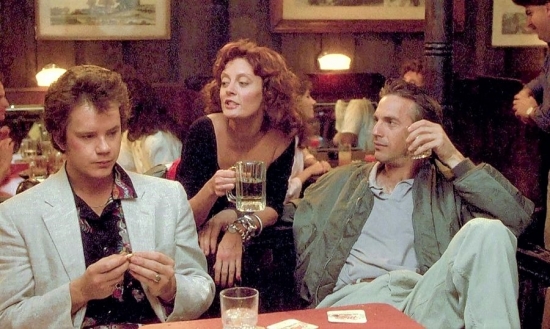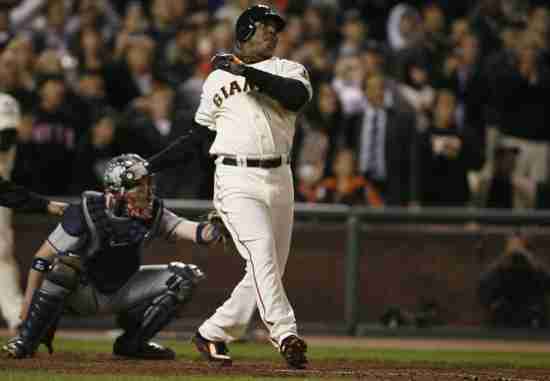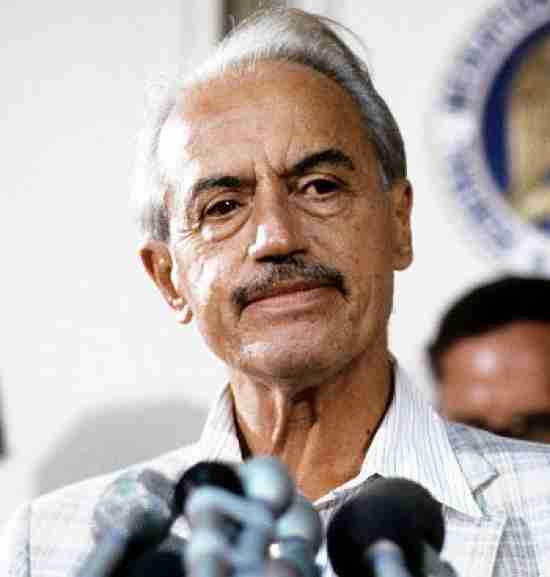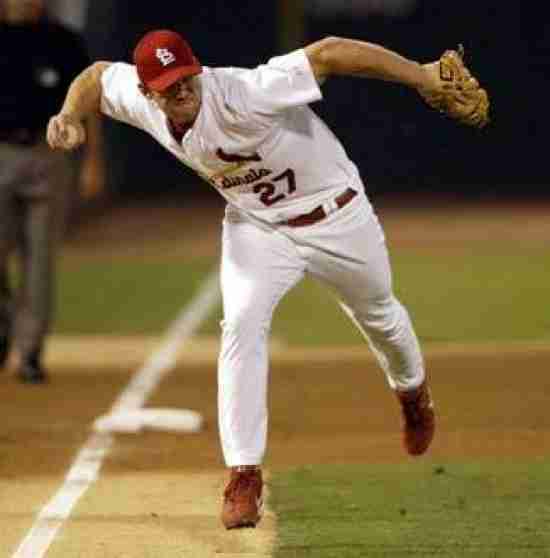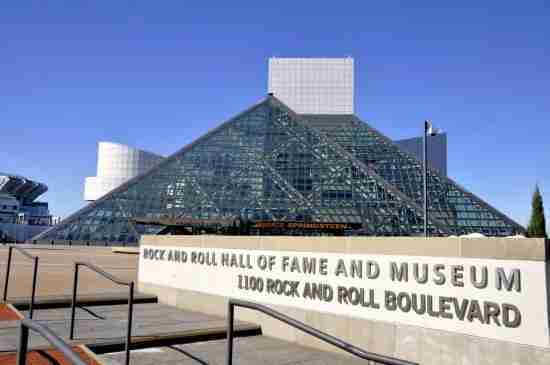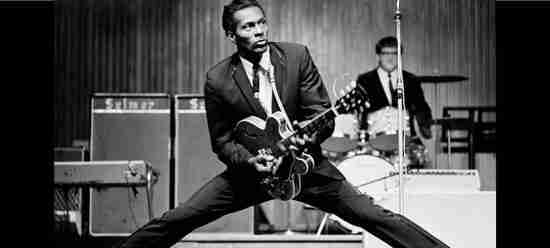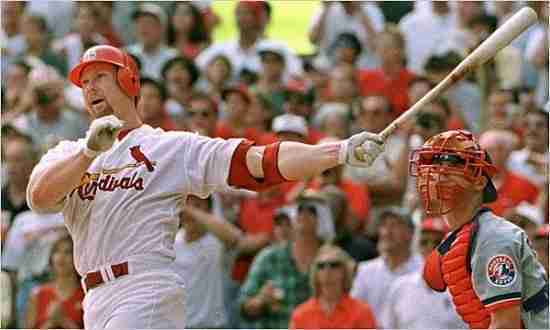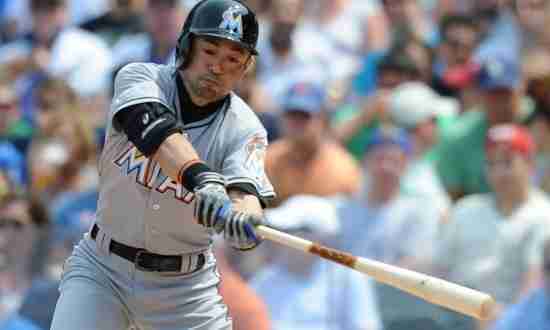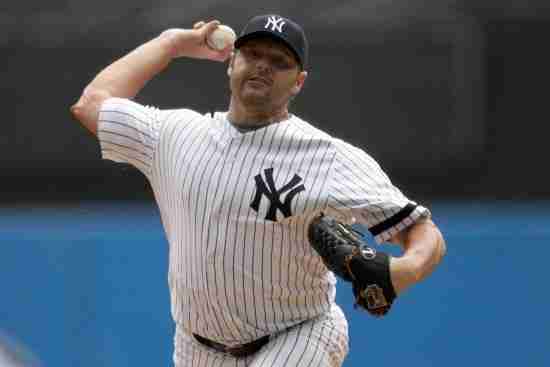DDT's Pop Flies (67)
DDT (AKA Darryl Tahirali) is a freelance writer living in Orange County, California. Originally from Canada, DDT enjoys writing about music, baseball, and other areas of Western pop culture from the tasteful to the trashy. DDT can be reached at This email address is being protected from spambots. You need JavaScript enabled to view it..
Diamond Theater: Baseball Movies Through the Eras
Rogers Hornsby, the Hall of Fame second baseman second only to fellow Hall of Famer Ty Cobb in career batting average, once said, "People ask me what I do in the winter when there's no baseball. I tell you what I do. I stare out the window and wait for spring." The right-handed slugger, who remains the only player to combine a .400 batting average with 40 or more home runs in the same season (1922, the year he won the first of his two Triple Crowns), also never went to the movies (or read books), claiming that it would harm his eyesight.
- baseball
- movies
- Joe Jackson
- jackie robinson
- alibi ike
- fireman, save my child
- elmer, the great
- it happens every spring
- the babe ruth story
- the pride of the yankees
- the winning team
- ladies' day
- angels in the outfield
- the stratton story
- big leaguer
- the jackie robinson story
- fear strikes out
- The Bad News Bears
- Major League
- eight men out
- Bull Durham
- field of dreams
- A League of Their Own
- Mr Baseball
- mr 3000
- chasing 3000
- the natural
- soul of the game
- 42
- million dollar arm
- Sugar
- trouble with the curve
- 61*
- moneyball
Concert Report 2018: Deep Purple and Judas Priest
Two generations of Britmetal slammed out their wares at FivePoint Amphitheater in Irvine, California, on September 27 as Deep Purple headlined the show that Judas Priest opened, with two different kinds of metalheads banging in support of each.
And while both bands have been presenting said wares for more than four decades, each demonstrated that it still had a trick or two up its sleeve even as both reliably fired off the hallmarks that eventually landed one band in the Rock and Roll Hall of Fame while the other is on the short list of the Rock Hall's biggest "snubs." So, did one band justify its inclusion? And did the other further its case for inclusion?
Concert Report 2018: Poison and Cheap Trick
You've heard the saying, "Every man has his price"? For me, it's $20. At least that's what I was willing to fork over to see Poison and Cheap Trick at FivePoint Amphitheater in Irvine, California, on May 18. And for one of those bands, it was worth it.
Earlier this year, concert promoter Live Nation announced National Concert Week, an online promotion offering tickets for $20 (US) to a wide range of artists touring throughout the 2018 concert season. Ever-alert for bargains, my friend Kathie tipped me off to this limited-time offer, and soon we were deep into negotiations.
If I Had a Vote in the 2018 Baseball Hall of Fame Election
Sounds like voting for the Baseball Hall of Fame for the last few years, doesn't it?
The good news is that since the Shutout of 2013, when the eligible members of the Baseball Writers' Association of America (BBWAA) could not muster the 75 percent of the vote necessary to elect any one ballot candidate to the Hall of Fame despite a wealth of candidates from whom to choose (I counted 14), the BBWAA has sent a dozen players to Cooperstown. Based on that trend, and barring any unusual or unforeseen wrinkle, the writers are certain to elect at least one player for 2018.
- baseball hall of fame
- barry bonds
- roger clemens
- Vladimir Guerrero
- Trevor Hoffman
- Jeff Kent
- Edgar Martinez
- Fred McGriff
- Mike Mussina
- Manny Ramirez
- Curt Schilling
- Gary Sheffield
- sammy sosa
- Billy Wagner
- Larry Walker
- Chris Carpenter
- Johnny Damon
- Livan Hernandez
- Orlando Hudson
- Aubrey Huff
- Jason Isringhausen
- Andruw Jones
- Chipper Jones
- Carlos Lee
- Brad Lidge
- Hideki Matsui
- Kevin Millwood
- Jamie Moyer
- Scott Rolen
- Johan Santana
- Jim Thome
- Omar Vizquel
- Kerry Wood
- Carlos Zambrano
- joe morgan
Modern Baseball Committee (1970 – 1987): The 2018 Election
Baseball Hall of Fame: Upcoming Borderline Candidates, Part 2
Baseball Hall of Fame voting in the last few years has been fascinating for a number of reasons, particularly the logjam of qualified candidates, which promises to remain an issue for the next few years. That logjam puts additional pressure on the borderline candidates—will they be overlooked, perhaps unfairly, because there are too many candidates from which to choose?
What's Wrong with the Rock and Roll Hall of Fame?
1.
2.
3.
4.
5.
Remembering Chuck Berry
Standing in the checkout line at Trader Joe's, I looked at the BBC News website on my phone to see what was happening in the world. The inevitable had happened.
"How you doin' today?" the young woman asked as she pulled in my cart.
EVALUATING BASEBALL'S 2017 TODAY'S GAME ERA COMMITTEE BALLOT
Is Ichiro Suzuki the Real Mr. 3000?
2015: The Year in Film (Somewhat)
- american sniper
- blackhat
- kingsman: the secret service
- selma
- about elly
- jurassic world
- mad max: fury road
- tomorrowland
- black mass
- love and mercy
- the man from uncle
- a walk in the woods
- the big short
- bridge of spies
- carol
- crimson peak
- joy
- legend
- the martian
- room
- sicario
- spectre
- star wars: the force awakens
- steve jobs
- trumbo
- truth
- the walk
- youth
- spotlight
If I Had a Vote in the 2016 Baseball Hall of Fame Election
To put that into perspective, how's this for abnormal? In 2013, with a ballot overstuffed with Hall of Fame-caliber candidates (I counted 14), not one candidate was elected to the Hall. Adding to the debacle was the first appearance on a Hall of Fame ballot by Barry Bonds and Roger Clemens, both of whom brought the bubbling issue of players suspected or confirmed of having used performance-enhancing drugs (PEDs) to an apoplectic, moralistic boil.


